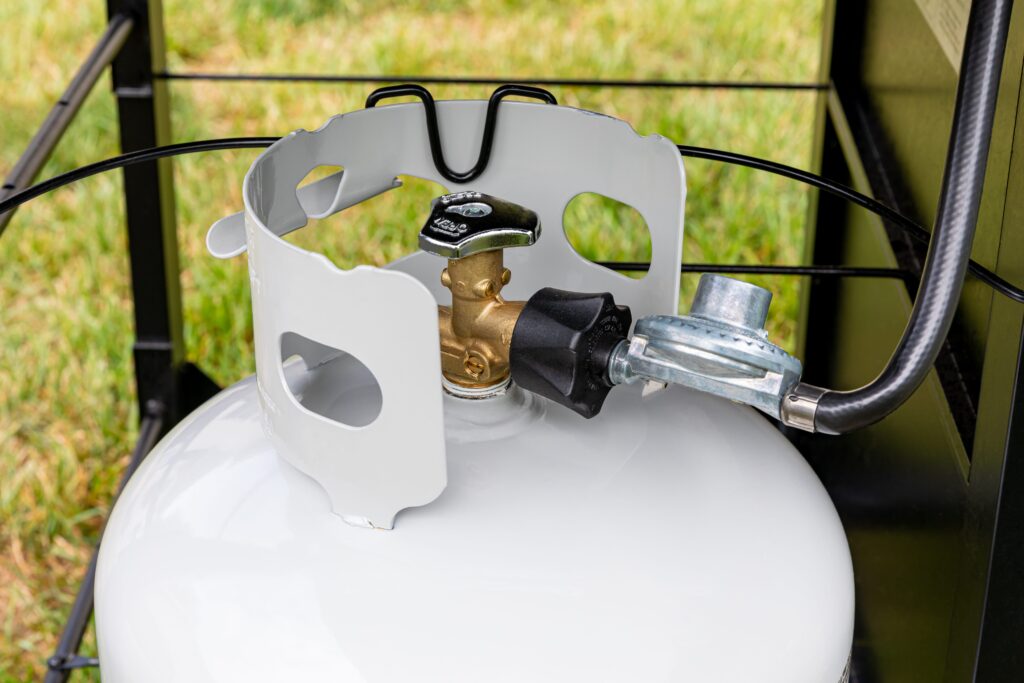With summer just around the corner, now is the perfect time to focus on propane tank safety and maintenance.
Propane is often thought of as a winter need, but the summertime brings a variety of uses for portable propane tanks, and it’s important to know the proper care. From grilling to camping, ensure your summer activities are safe by giving your propane tanks the necessary care. Remember, we only fill propane tanks to 80% capacity to allow for tank expansion as outside temperatures drastically change, ensuring safety and efficiency.

Before You Begin
Before starting your grill or other propane-powered equipment, make sure you do a quick but thorough inspection of the propane tank. Performing regular checks can help prevent many common issues and ensure the safe use of your propane-powered equipment.
Regular Maintenance Checklist
- Visual Inspection:
- Check the propane tank for any signs of wear or damage.
- Look for rust, dents, or scratches on the tank’s surface.
- Connection Checks:
- Ensure all connections are secure.
- Check the hose and regulator for cracks or leaks.
- Leak Test:
- To check for leaks, apply soapy water to the connections and open the gas valve slightly. If bubbles appear, you have a leak in your tank.
- Post-Storm Inspections:
- After any severe weather, inspect your tank and its connections for any new damage.
- Ensure the tank has not shifted and is secured.
Proper Propane Tank Storage
Proper storage is key to propane safety. Always keep your propane cylinders outside, in an upright position, and away from direct sunlight and any heat sources. This will prevent pressure build-up inside the cylinder, reducing the risk of leaks or explosions. Portable propane tanks are a life changer and power much of our home, lawn, and business needs. Always follow these safety precautions for proper handling and storage of 20 gal, 30 gal, and 100 gal cylinders often used in BBQ grills, campers, turkey fryers, propane heaters, mobile homes, forklifts, and more.
Carbon Monoxide Safety
Always use propane-powered equipment in well-ventilated areas to prevent carbon monoxide buildup. Ensure that your carbon monoxide detectors are functioning correctly and test them regularly. Performing regular checks will protect you and your family from CO poisoning.
Emergency Preparedness
Have an emergency preparedness plan at the beginning of the summer and inform everyone else in your household. Know your home’s emergency utility shut-off procedures before summer begins. Teach everyone in your household how to turn off the propane supply, and make sure they know what to do if they smell gas or if other propane emergencies arise. If you smell gas, evacuate immediately, avoid using electrical switches, and call your propane provider or emergency services from a safe distance. You can regularly practice your emergency plan with all household members to ensure everyone knows their roles in an emergency.
By following these essential guidelines, you’re not only ensuring a fun summer but are also protecting what matters most — your family’s safety. Remember, prioritizing safety is crucial when handling any fuel source. Take the time now to prepare and prevent any issues later. Stay safe and make the most of your summer!
